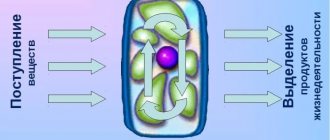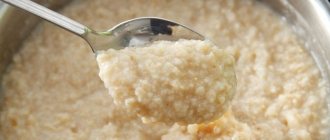Shmiyet diet. Stop sticking to a strict diet, it's time to start speeding up your metabolism with food. Yes, yes, with food. You can give your body a boost in burning calories and speeding up its seemingly sluggish metabolism simply by eating certain metabolism-boosting foods.
First, it's important to know what your metabolism is, how it works, and how to improve your metabolism. You may think you already know everything, but fitness expert and nutritionist Brad Davidson will convince you otherwise.
“Most people think metabolism is simply how much energy our body burns,” Davidson notes in his book, thus explaining the common misconception that metabolism simply speeds up or slows down.
“Metabolism is a much broader concept. Metabolism is the combined effect of all biochemical processes that constantly occur in our body at the cellular level. These processes are responsible for the functioning of all components of our body. Simply put, this is why we can think, digest food, move, and perform all the necessary functions of a living, breathing being.”
In other words, metabolism isn't the only thing you need to pay attention to if you want to lose a few extra pounds.
“Everyone can benefit from a faster metabolism because metabolism is literally the powerhouse of our body, providing us with the energy we need to live,” says Beth Warren, author of Living Now with Real Food and CEO and founder of . “A good metabolic rate ensures the body functions properly. The risk of developing various diseases, such as diabetes, which is a consequence of metabolic disorders, is reduced.”
Denis Baron, a health educator and director at , says that a slow metabolism has something to do with weak immunity. “When your body is slow, you are more likely to suffer from colds, flu, depression, headaches, stomach problems, constipation, excess weight, and skin conditions such as acne.”
Of course, the main task of metabolism is to digest food and convert it into energy - these two points, called anabolism and catabolism, are highlighted by nutritionist Rene Fisek. “In a sense, anabolism and catabolism exist in balance. It’s like the yin and yang of metabolism.”
Before we begin, it is important that you understand that speeding up your metabolism is not a matter of waving a magic wand and having a miracle that will solve all your problems. Dr. Caroline Cederquist explains what to expect from a faster metabolism: "Changing your metabolism and speeding it up means that if you lose weight while trying to maintain muscle, you can adjust your weight loss."
Besides weight loss, which is definitely a deciding factor for you, the normalizing effect of a faster metabolism will be reflected throughout your entire body. And all our experts agree on one thing - the key to fast metabolism in your stomach.
How to improve your metabolism with diet
After the topic of metabolism gained enough popularity, many people decided to take the path of least resistance, using a variety of supplements and simulators. Laurie Kenyon Furley, RD, a health, fitness and anti-aging nutritionist, cautions, “Natural metabolism boosters will not have any negative effects on your body, such as your thyroid. And artificial and pharmaceutical stimulants can significantly undermine your health.”
Christina Meyer, a nutrition and health specialist, admits that “using various supplements, you will get the energy you need here and now, but later you will experience too much fatigue. And this effect will accumulate until there is an “explosion”, which will most likely land you in the hospital.”
She also warns of the potential for negative consequences from overuse of supplements. “Due to a deficiency of vitamin B, you will begin to experience lethargy and it will become difficult to think. The load on the liver and kidneys also increases, which is no less dangerous.”
It's not worth it. Moreover, when there is a natural alternative, food products that speed up metabolism, which are much simpler and healthier.
All this was said to mean that speeding up your metabolism does not mean just eating right. Choosing healthy foods may benefit your health, but it will have little effect on your metabolic rate. However, there are metabolism-boosting and fat-burning foods that can greatly influence how much energy your body produces and how much fat it burns.”
Herbs that improve metabolic processes
To improve metabolism, it is recommended to use the following medicinal plants:
- Nettle. Contains chlorophyll grains and ascorbic acid. Can be taken as part of medicinal decoctions or added to dishes (soups, salads, etc.).
- Lingonberry leaves. Promote weight loss by increasing metabolism. They are an excellent addition to a protein diet, as they contain a large amount of vitamins and other useful substances.
- St. John's wort. Stimulates gastric secretion. It cannot be taken during drug treatment, as it removes drugs from the body.
- Chicory. Contains a large amount of ascorbic acid. It is a bile and diuretic, a natural metabolism accelerator. Improves the functioning of the gastrointestinal tract and hematopoietic system.
How to eat right to speed up your metabolism?
First of all, get rid of the misconception that diet slows down your metabolism. Kristen Trukova, director of the oncology dietetics clinic about products. As a result of thermogenesis, about 10% of the calories consumed per day are burned per day, which is about 180 calories on a diet of 1800 calories/day.”
In other words, don't think that by fasting and eating smaller meals you will speed up your metabolism. Most likely, on the contrary, you will slow it down even more.
As already mentioned, you won't be able to eat whatever you want. Convenience foods, bread, pasta and grains disrupt the metabolism of many people.
Fat burning herbs
Plants with fat-burning effects can be divided into 2 groups:
- accelerating the process of lipid (fat) breakdown,
- increasing metabolic rate.
Those plants and herbs that increase the release of adrenaline and increase body temperature have fat-burning properties. These include:
- yarrow,
- dandelion,
- milk thistle,
- sagebrush,
- caraway,
- ginger,
- rosemary,
- cinnamon,
- turmeric,
- flax seed,
- green tea, etc.
The most popular fat burner is plantain. You can use the leaves and seeds of this plant to prepare medicinal decoctions. Plantain starts the processes of lipid breakdown and protects the body from complications associated with uncontrolled consumption of fatty foods.
To get the maximum result from treatment with folk remedies, you need to lead a healthy lifestyle. Proper nutrition and exercise will speed up the process of losing weight and help increase the percentage of muscle mass.
Foods to speed up metabolism
What foods speed up metabolism and promote weight loss? Switch to whole grains, eat more vegetables and fruits. Then add some (or all!) of these foods to your diet to boost your metabolism.
Almond
Although they are quite high in calories (don't overdo them), almonds contain healthy fatty acids that speed up your metabolism.
Beans
The basis of fast metabolism is protein and fiber. Beans contain a sufficient amount of both. These are products that improve metabolism and normalize digestion.
"Dietary proteins contain more calories to digest than any other macronutrient," says Erin Palinski-Wade, author of Belly Fat for Fools. “By increasing the amount of protein you consume, you will naturally increase the number of calories you burn each day.”
Trukova confirms that “80 calories are required to digest 400 calories of protein, while for the same amount of carbohydrates only 40 calories are enough, and for fats even less - 12 calories.”
But this is not the only reason why beans are on the list of metabolically beneficial foods. Ferley emphasizes the importance of iron-rich foods to speed up metabolism. According to her, “Iron is an important mineral for the body that helps in transporting oxygen to the muscles, which helps burn fat. Iron is an important element necessary for the body to obtain energy.”
Berries
All fruits contain a sufficient amount of carbohydrates and fiber, which is an important component of fast metabolism. Ashley Koff, a nutritionist at Earthbound Farm, notes the special place berries have in the diet, as they are rich in “antioxidants and vitamin C, which increases the rate of muscle recovery after exercise.”
Bone broth
Sarah Vance, nutritionist and author of The Ultimate Metabolism Diet, swears by bone broth as a metabolic booster due to its high levels of protein, minerals, and collagen. “Collagen maintains the health of the intestinal lining, which is extremely beneficial for proper digestion and absorption of nutrients - this is what is critical for metabolism.”
Celery
Most likely, you have heard this legend that celery is a “negative calorie” product, which can hardly be called true. Koff explains the reason for this legend: foods with very low calorie content are good for speeding up metabolism.
“Celery stimulates digestion.” Celery works well as an alternative to crackers and chips for scooping up guacamole, salsa or peanut butter. For added benefits, try seasoning celery with cinnamon, ginger, and cayenne pepper—all of these seasonings are also good for your metabolism.
Chia seeds
In addition to broth, Vance loves chia seeds; she calls them “the main reason why I became a nutritionist.”
“I decided that if one product could do it all, then I simply had to learn more about what products could do medically and scientifically,” she recalls.
“Chia seeds are rich in fiber, protein and healthy omega-3 fatty acids.”
Chocolate
The good news is that dark chocolate (70% cocoa content or higher) helps speed up your metabolism.
“Raw cocoa beans are one of the best sources of magnesium, which helps maintain glucose levels,” explains Vance. “In addition, magnesium stimulates the production of the fat-burning hormone – adiponectin.”
A little dark chocolate will not only do no harm, but will also give you the emotional and physical boost you need.
Apple vinegar
Apple cider vinegar combined with lemon juice, cinnamon, cayenne pepper and fresh honey is the best sauce to boost your metabolism.
Palinski-Wade notes that apple cider vinegar works a little differently than all the other products on this list. She says apple cider vinegar "helps increase the stomach's ability to produce hydrochloric acid."
"What does it mean? If the stomach produces more acid, it will be easier to digest food and nutrients will be better absorbed.”
If that's not enough for you, Palinski-Wade also mentions the role of apple cider vinegar in controlling blood sugar levels.
Cinnamon
All our experts unanimously agree on the benefits of cinnamon. Palinski-Wade says that "Cinnamon is tremogenic, which means your body automatically burns more calories throughout the day." She recommends taking ¼ teaspoon of cinnamon every day.
Vance also notes that cinnamon not only speeds up your metabolism, but also helps reduce sugar cravings.
Coconut oil
It may seem counterintuitive to you, but some fats actually help speed up your metabolism, like Vance's "favorite fat" - coconut oil.
“The fatty acids found in coconut oil are more easily converted into energy, which speeds up your metabolism. Coke oil also has a beneficial effect on the thyroid gland.”
Coconut oil can be consumed either raw or used in cooking. Don't worry, if you fry chicken in this oil, it won't lose its flavor or taste like coconut.
Coffee
Caffeine gives a boost not only to your metabolism, but also to your brain. And, according to sports nutrition specialist Lindsay Langford, it's much healthier than sugar. "Caffeine (found in coffee and some teas) temporarily speeds up your metabolism, so if you need something to help you get your bearings and give you a jumpstart, choose caffeine over sugar-laden energy drinks."
Trukova shares that “most studies have found that 100 mg of caffeine (equivalent to one cup of coffee) per day can burn an additional 75-110 calories per day.” This is not much, especially compared to the products on this list, but in combination with physical activity, caffeine can be a good help.
Most of our experts keep touting the short-term effects of caffeine, which include speeding up metabolism and increasing energy levels. “I absolutely love it when my clients drink coffee or green tea before a workout, which has a positive impact on their performance,” says Davidson. “Caffeine-like substances increase the activity of the central nervous system, which allows you to train harder, harder, more effectively.”
However, don't overdo it with caffeine - try to drink no more than 2-3 cups per day.
Curry
Curry is not only tasty, but also good for metabolism. Curry speeds up metabolism thanks to a combination of various spices: from hot pepper to turmeric and ginger.
Fish
Fish is an excellent source of not only protein, but also healthy omega-3 fatty acids, which is doubly good for metabolism.
According to Santa Monica gynecologist and founder of The Hall Center, Dr. Prudence Hall, “Omega-3 oils reduce inflammation and regulate blood sugar levels, which in turn speeds up metabolism.”
Palinski-Wade recommends eating fish, such as salmon, at least 3 times a week. “Omega-3 fatty acids not only reduce inflammation, but also reduce the production of stress hormones. An increased level of stress hormone in the blood after some time provokes the accumulation of fats and an increase in blood sugar levels. Therefore, it is important that the body gets enough omega-3 fatty acids, which help control stress hormones in the body.”
Are there fats to burn fats? Why not.
Grapefruit
Thanks to its proven ability to lower insulin levels, grapefruit has long been recognized as a fruit for weight loss. In addition, grapefruit is rich in fiber, which is also good for metabolism, and vitamin C, which has a beneficial effect on the immune system.
Green tea
Epigallocatechin gallate is a form of catechin found in green tea. According to Davidson, this substance stimulates the fat burning process.
Many of our experts share the same opinion. Studies have shown that green tea extract can speed up metabolism by 4 percent. To put this into perspective: “Three to five cups of green tea a day will help you burn an additional 70 calories, which equates to 3 kilograms in a year, 15 kilograms in 5 years and 30 kilograms in 10 years.”
Hot pepper and jalapeno pepper
According to Furley, any chili pepper speeds up your metabolism. “Chili peppers contain chemicals called capsinoids that increase energy expenditure.”
Langford admits, “It’s not the pepper itself, but the substance that makes it hot—capsaicin—that does most of the work. It wakes up your hormones and speeds up your heart rate, causing you to breathe faster and causing your body to burn more calories and excess fat.”
In addition, Fisek Fr.
Palinski-Wade says one hot pepper a day is enough to get the full effect. “Add chopped jalapenos to a sandwich or salad and red chili to soup.”
Lean turkey
As mentioned earlier, protein is the key to being slim. Turkey and chicken are the best sources of animal protein with minimal fat.
Protein is used to build muscle and burn calories because it takes more effort for the body to digest it. Langford O.
Seaweed
Hall notes that due to its iodine content, seaweed is also an excellent metabolism booster. "If you eat seafood and seaweed rich in iodine, your body will produce more thyroid hormones, which effectively speed up your metabolism."
But remember, excessive consumption of seaweed can lead to iodine poisoning. It is enough to consume them three times a week.
Spinach
Spinach, like any green, speeds up metabolism due to its high fiber content. High fiber foods can increase fat burning by 30%.
Koff also reminds us that "greens like spinach and kale also contain high amounts of iron, which is good for the blood, and calcium, which supports muscle health."
Watermelon
While many people are against eating watermelon due to its high sugar content, Palinski-Wade says a couple of pieces of watermelon won't hurt anyone. “Thanks to its high content of the amino acid arginine, this tasty fruit will allow you to easily and pleasantly lose a few extra pounds.”
Water
Last on the list, but not least important, is water. Davidson calls it "the starting point in the process of accelerating your metabolism." Studies have shown that drinking enough water speeds up your metabolism by 30 percent.
In addition, water naturally reduces appetite. This alone is enough for her to become your new best friend.
But how much water should you drink per day?
Chances are you've heard of 8 glasses a day. It's not a good idea to follow this somewhat out-of-the-blue figure. The required amount of water is individual for each person and depends on his weight and calorie consumption. One study in Germany showed that even 2 extra glasses a day can be beneficial. But what should we strive for?
Ideally, this is 30 milliliters of water for every kilogram of weight. That is, if you weigh 80 kilograms, but your daily intake is 2400 milliliters (2.4 liters).
Of course, we do not encourage you to overeat with these products. After all, it’s not just what you eat that matters to your health. But also how you eat.
Diuretic herbs
The following herbs have a diuretic effect:
- birch leaves,
- parsley,
- coltsfoot,
- lingonberry leaves,
- St. John's wort,
- corn silk,
- green tea,
- nettle,
- calendula,
- oregano,
- Linden,
- thyme,
- mint,
- knotweed, etc.
The volume of excess fluid in the body can be more than 3 liters, so taking diuretics should not be neglected. Course use of herbal infusions and decoctions helps reduce swelling and reduce body weight. However, after the end of herbal medicine, fluid accumulation resumes. You can avoid this by limiting your salt intake.
You should not get carried away with diuretic drinks, because vitamins and minerals leave the body along with the liquid. To normalize the water-electrolyte balance, you need to reconsider your diet by adding bananas, walnuts, raisins, and buckwheat porridge.
5. Ginger
Adding ginger to food can increase body temperature and metabolic rate, and help control appetite.
Studies have assessed the effects of ginger on the weight loss and metabolic profiles of people who were overweight. It has been found that ginger may help reduce body weight and fasting glucose levels while increasing high-density lipoprotein (HDL) or "good" cholesterol.
Ginger also has anti-inflammatory properties and may help reduce nausea during pregnancy and after chemotherapy.
3. Lentils
Lentils are another functional food that may reduce the effects of metabolic syndrome.
A 2021 review of 41 animal studies reports that eating lentils and other legumes such as beans and peas may play a central role in preventing and treating metabolic syndrome.
Lentils can also speed up your metabolism because they are rich in protein. It also contains a lot of fiber to feed the good bacteria in your gut.
Flaxseeds
Flax seeds are seeds that contain protein, vitamins and other key nutrients. Some people consider flaxseeds a "functional food," meaning that people eat them for their health benefits.
Eating flax seeds may help boost metabolism and improve metabolic syndrome, which is a group of conditions that contribute to the development of diabetes, obesity, and cardiovascular disease.
The National Center for Complementary and Integrative Health is currently funding research into the role of flaxseed in metabolic syndrome.
A study on mice suggests that flax seeds may speed up metabolism. This is likely because they contain high amounts of fiber and protein, as well as omega-3 essential fats, antioxidants, and other essential nutrients.
The fiber in flax seeds ferments in the gut to improve the gut bacterial profile. This process helps metabolic health and may protect against obesity.
Research shows that flax seeds and their nutrients may also help treat or protect against:
- arthritis
- autoimmune diseases
- cancer diseases
- cardiovascular diseases
- diabetes mellitus
- neurological disorders
- osteoporosis
Herbs to reduce appetite
Another way to get rid of extra pounds is to reduce your appetite. Going on diets is not recommended, because any of them is stressful for the body. Therefore, taking herbal decoctions becomes the only way to regulate appetite and solve the problem of overeating.
It is recommended to use the following plants:
- chicory,
- hellebore,
- flax seed,
- dandelion,
- winter lover,
- kelp,
- senna,
- corn silk,
- marshmallow root,
- burdock, etc.
The use of decoctions and infusions reduces appetite, quantity and size of portions. Once in the stomach, the grass envelops its walls or increases in volume. As a result, a feeling of satiety is created, a person stops overeating, and the size of the stomach decreases. Regular consumption of herbal drinks creates a calorie deficit, so the body has to draw energy from fat reserves. The more a person moves and plays sports, the faster the process of losing weight goes.
An additional benefit of herbs that reduce appetite is their beneficial effect on the gastrointestinal tract. The active components of plants cleanse the body of toxins and waste, normalize intestinal microflora, and relieve constipation.
9. Broccoli
Broccoli may benefit your metabolism because it contains a substance called glucoraphanin.
Glucoraphanin helps “reset” metabolism, reduce blood fat levels and reduce the risk of many age-related diseases. Broccoli and other cruciferous vegetables may also prevent or slow the development of some forms of cancer.
For more significant metabolism-boosting effects, look for Beneforte broccoli, which contains high levels of glucoraphanin.
Brazil nuts
Brazil nuts are one of the richest sources of selenium, a mineral that is essential for metabolism, reproduction, and immune function. They also contain protein and healthy fats to help people feel fuller.
Selenium is especially important for the thyroid gland, a gland that regulates metabolic function and produces several vital hormones.
According to the National Institutes of Health, each Brazil nut provides 68 to 91 micrograms (mcg) of selenium, which exceeds the recommended intake of 55 mcg per day. However, people should avoid eating too many nuts, as this can cause selenium toxicity.
Research also shows that Brazil nuts may improve cholesterol levels in healthy people. Abnormal cholesterol levels are a marker of metabolic syndrome.
Dark leafy green vegetables
Vegetables contain a lot of iron, which is very important for metabolism.
Spinach, kale and other leafy green vegetables can boost your metabolism due to their iron content. Iron is an essential mineral for metabolism, growth and development.
Leafy greens are a source of non-heme, or non-animal, iron. Try combining leafy greens with a source of vitamin C, such as lemon, tomatoes, or pumpkin, to increase your body's absorption of this type of iron.
Many leafy plants also contain high amounts of magnesium, another mineral that supports metabolic function and is involved in more than 300 processes in the body.











